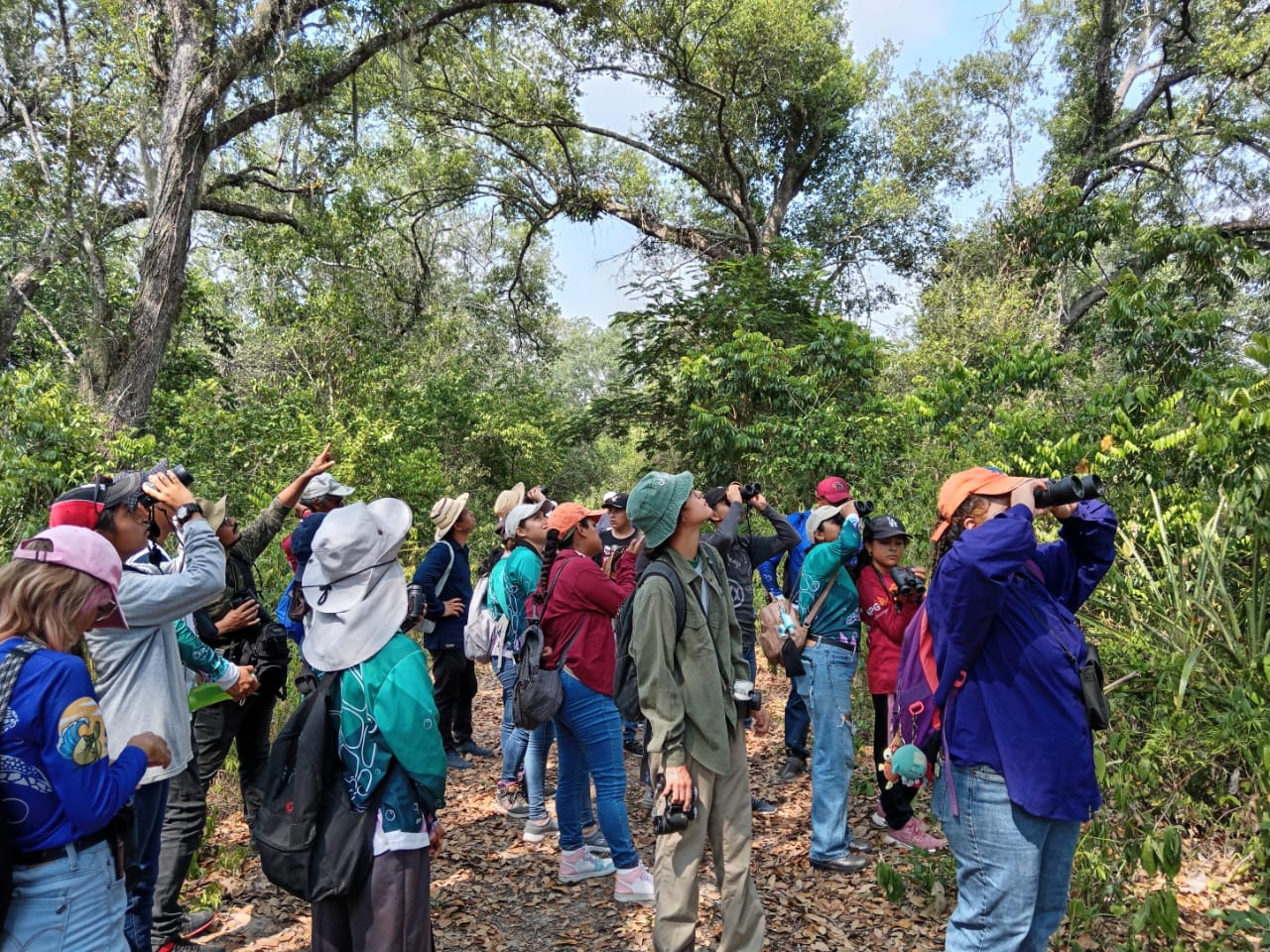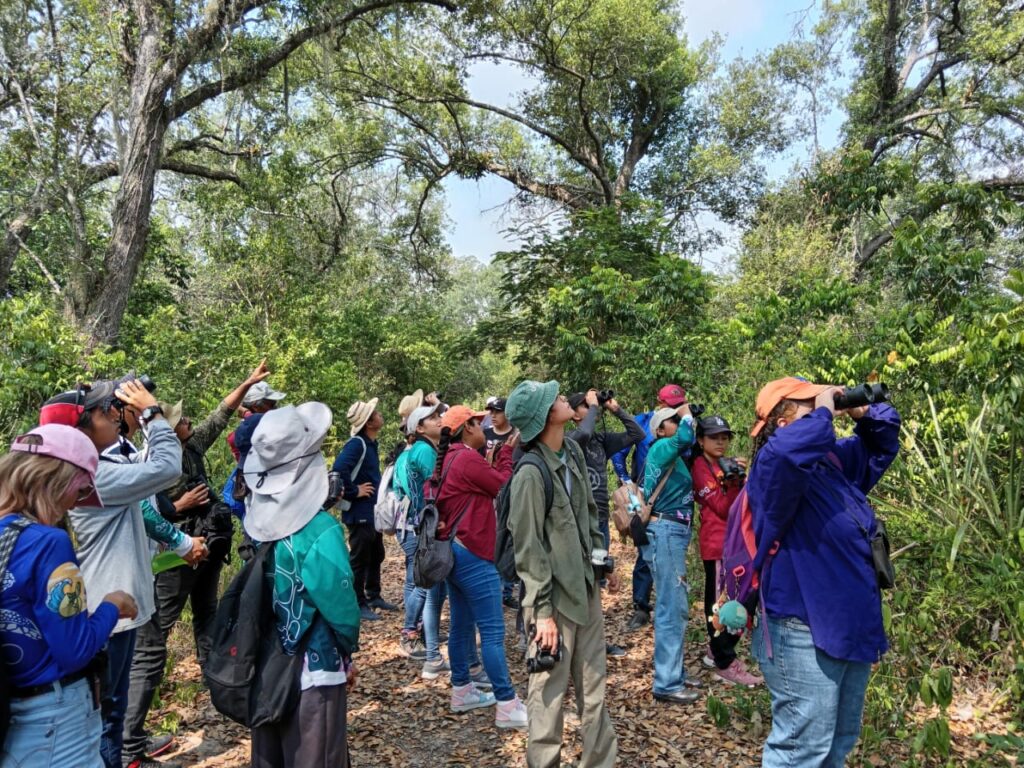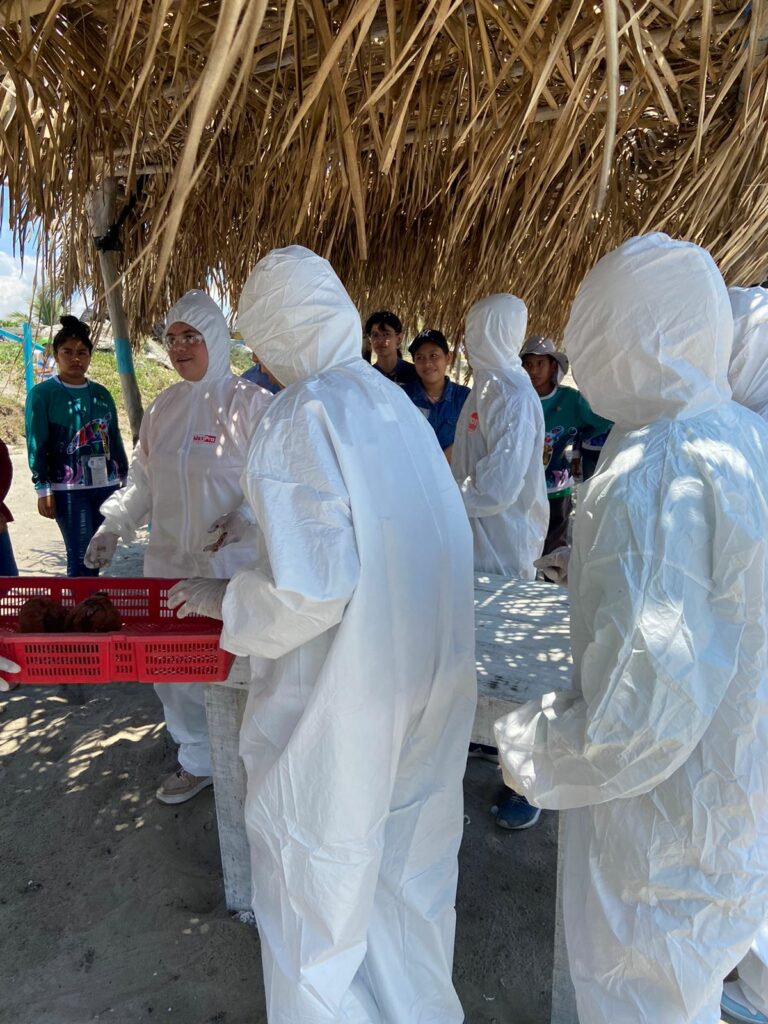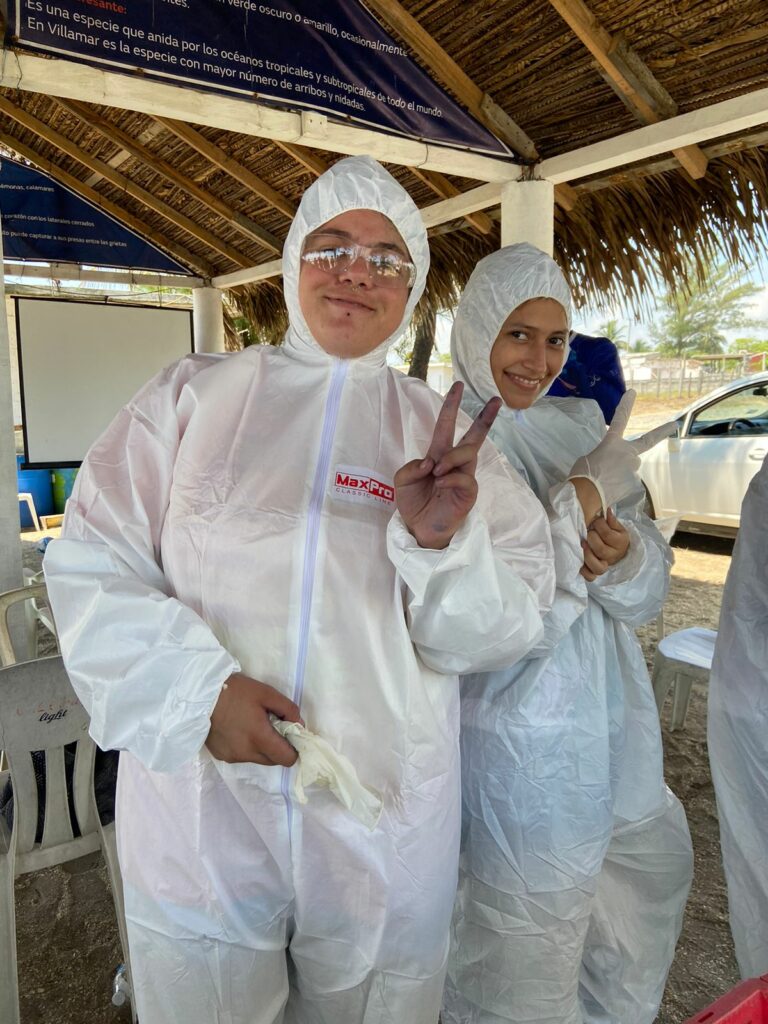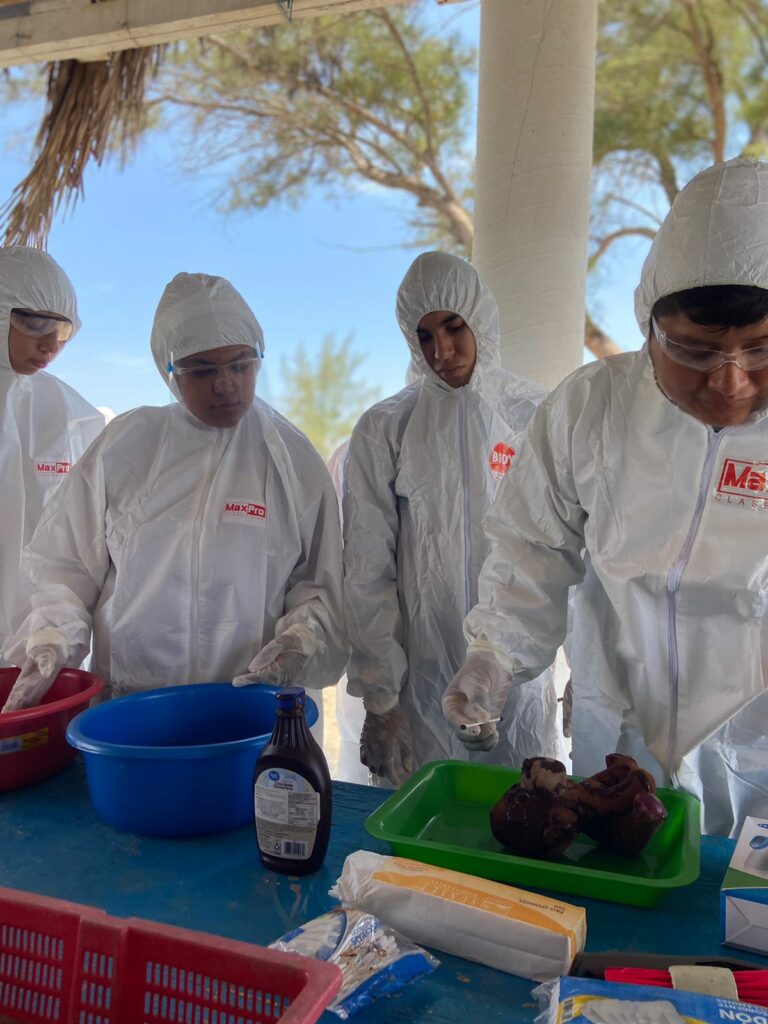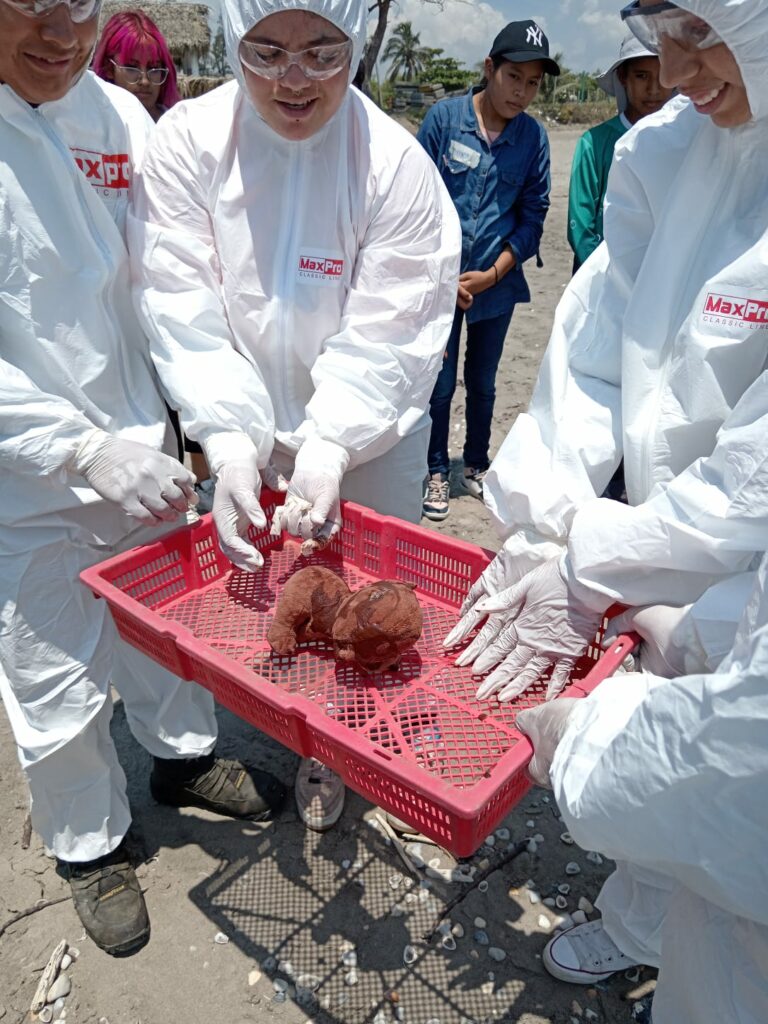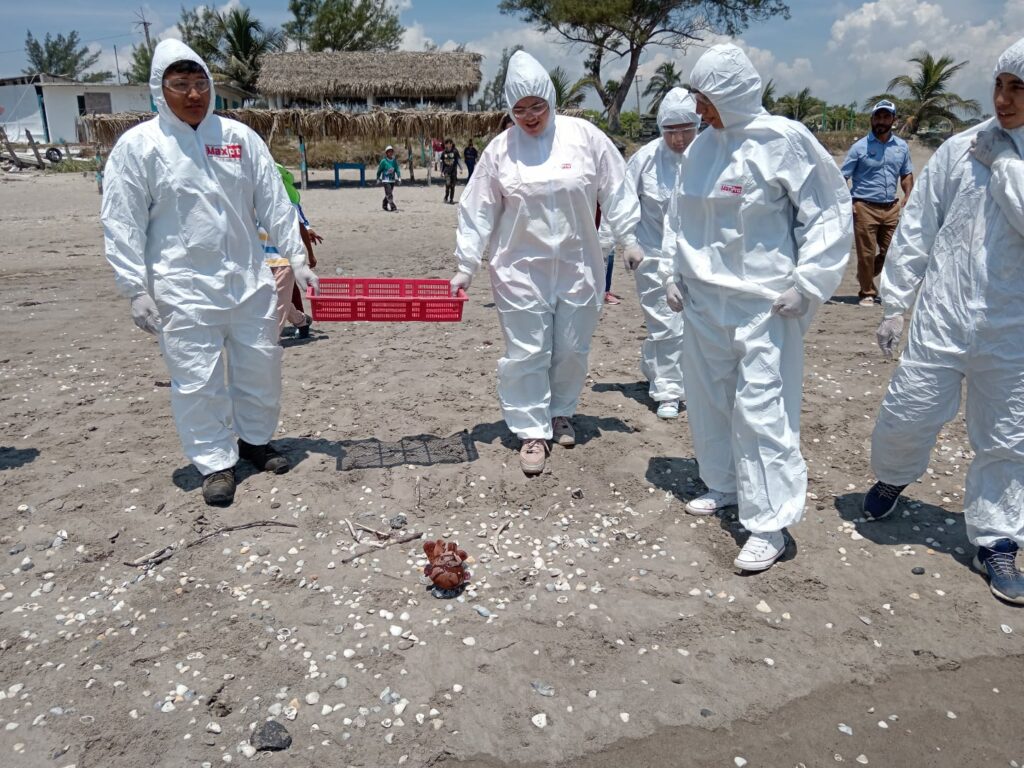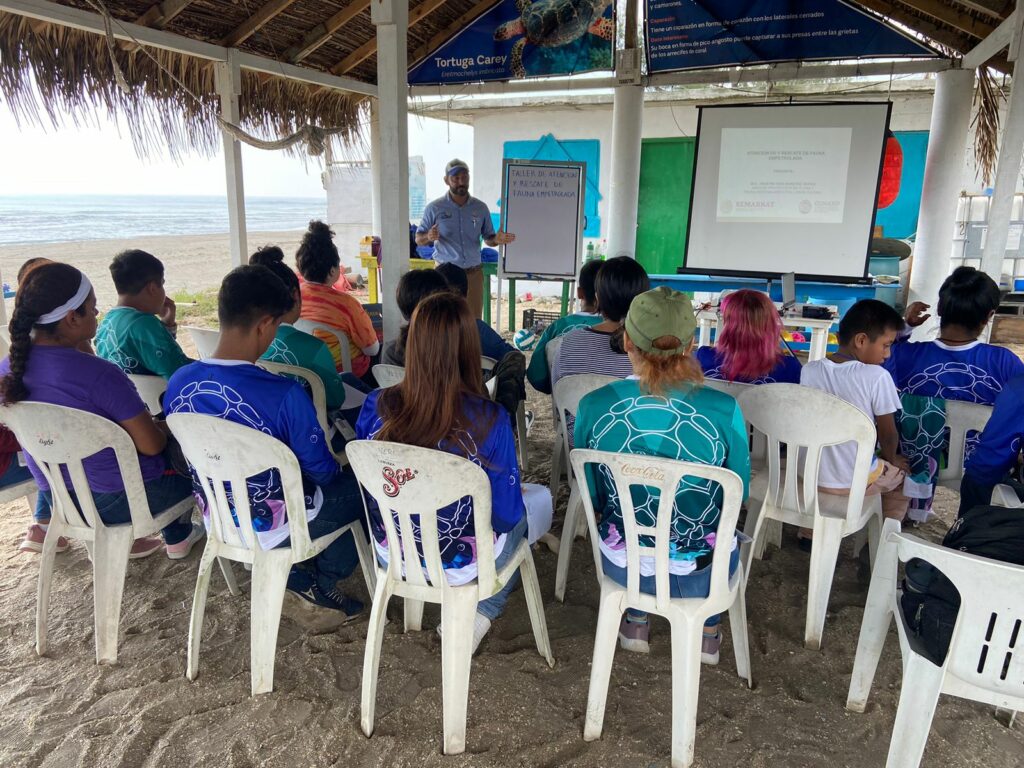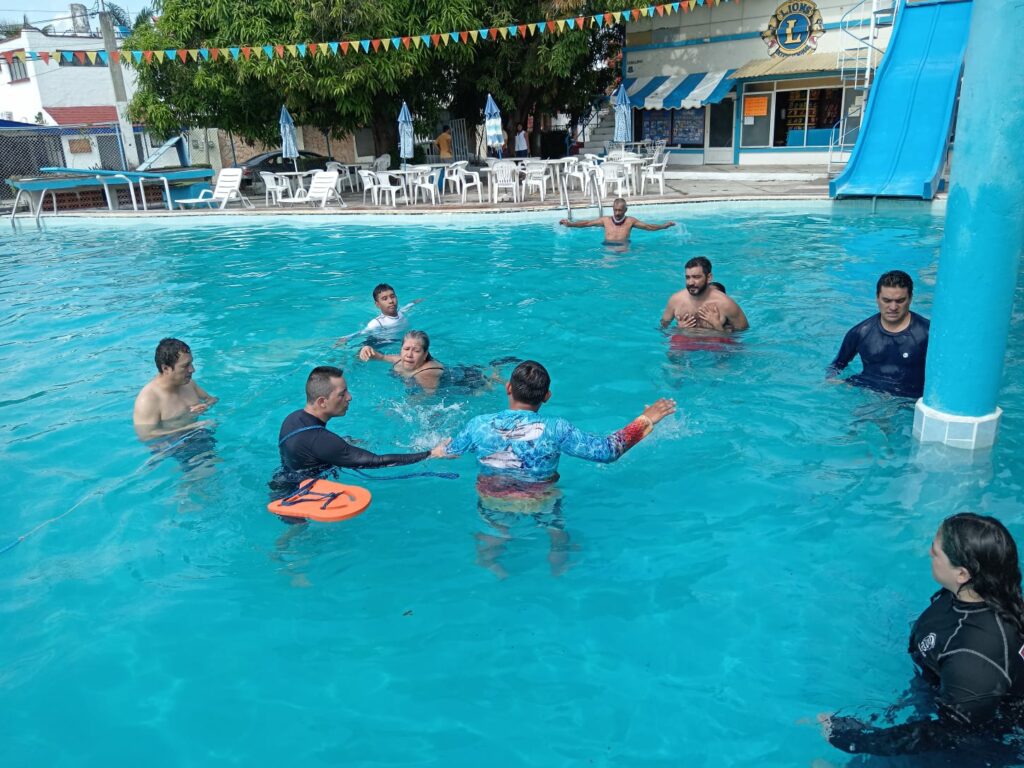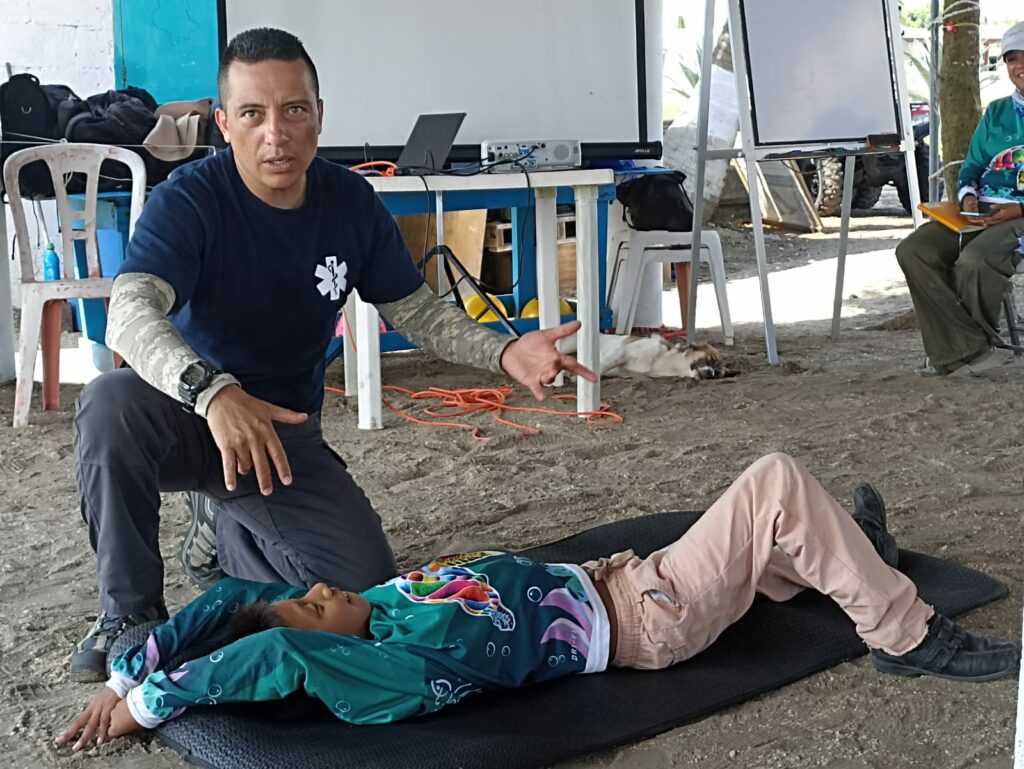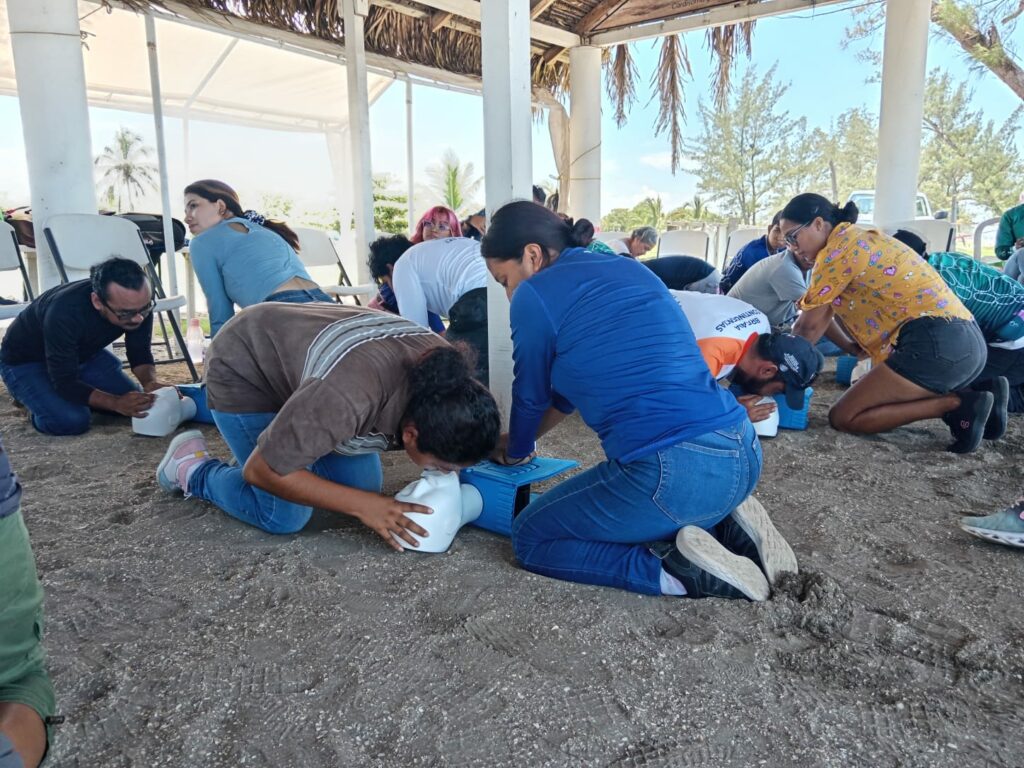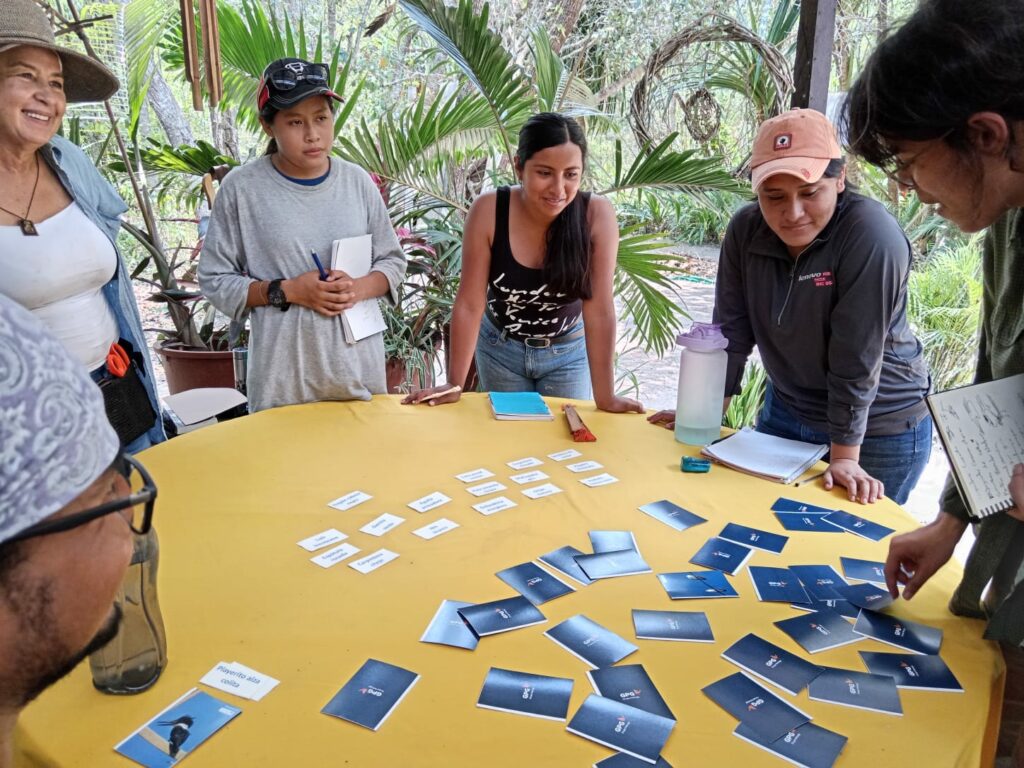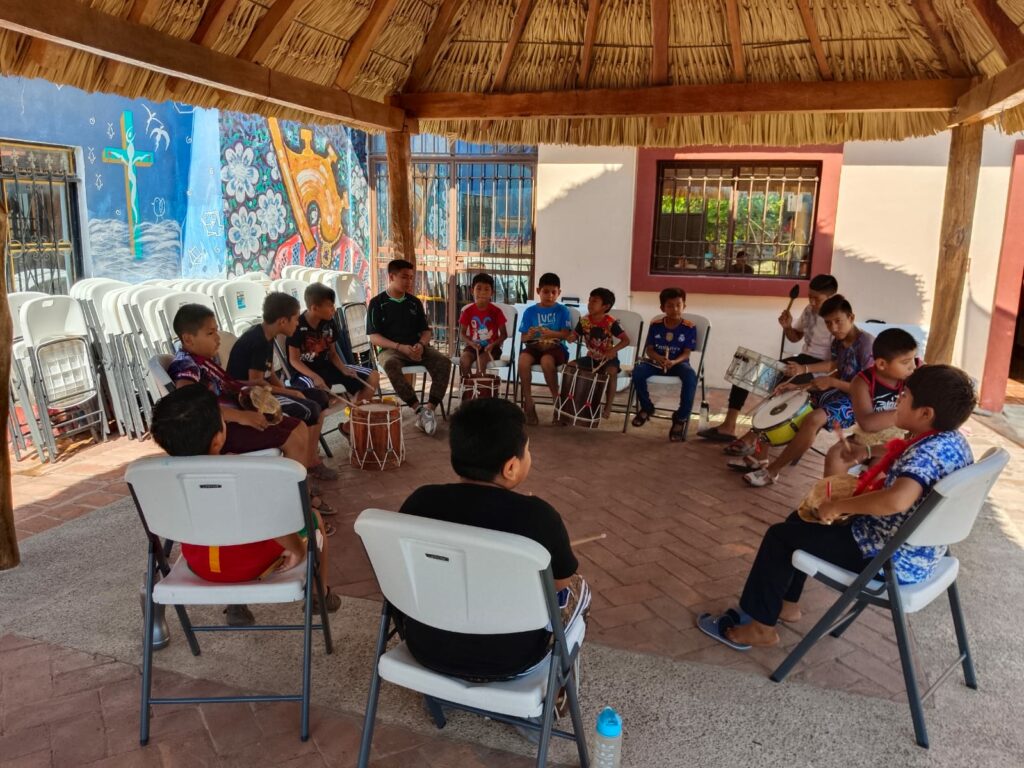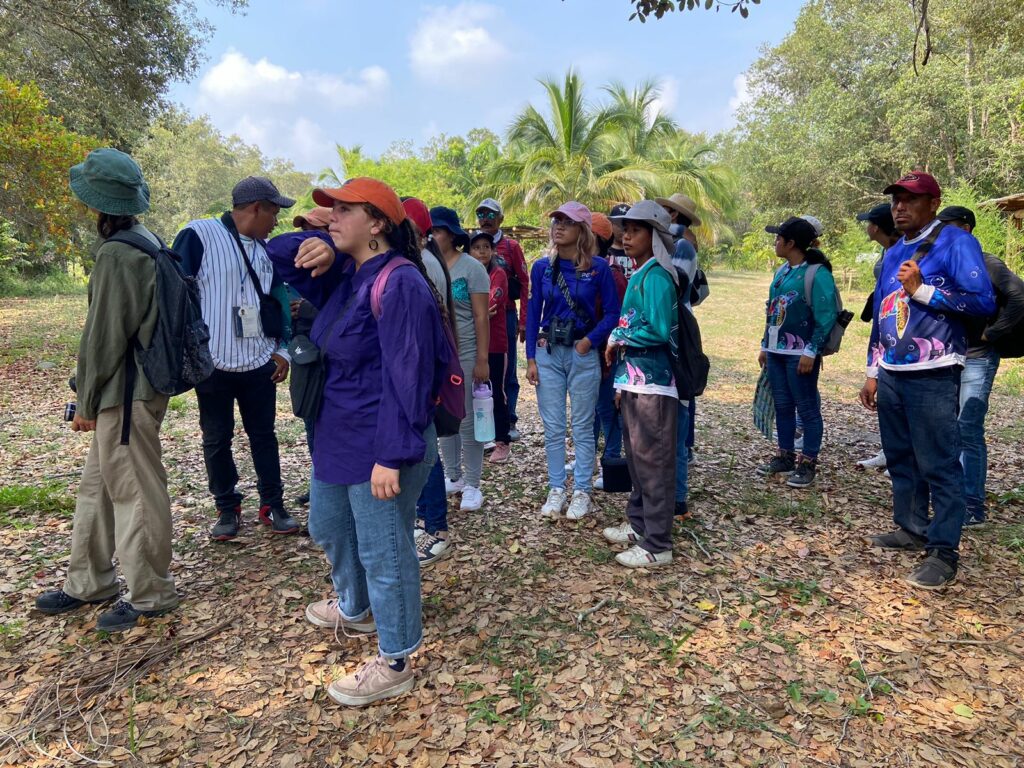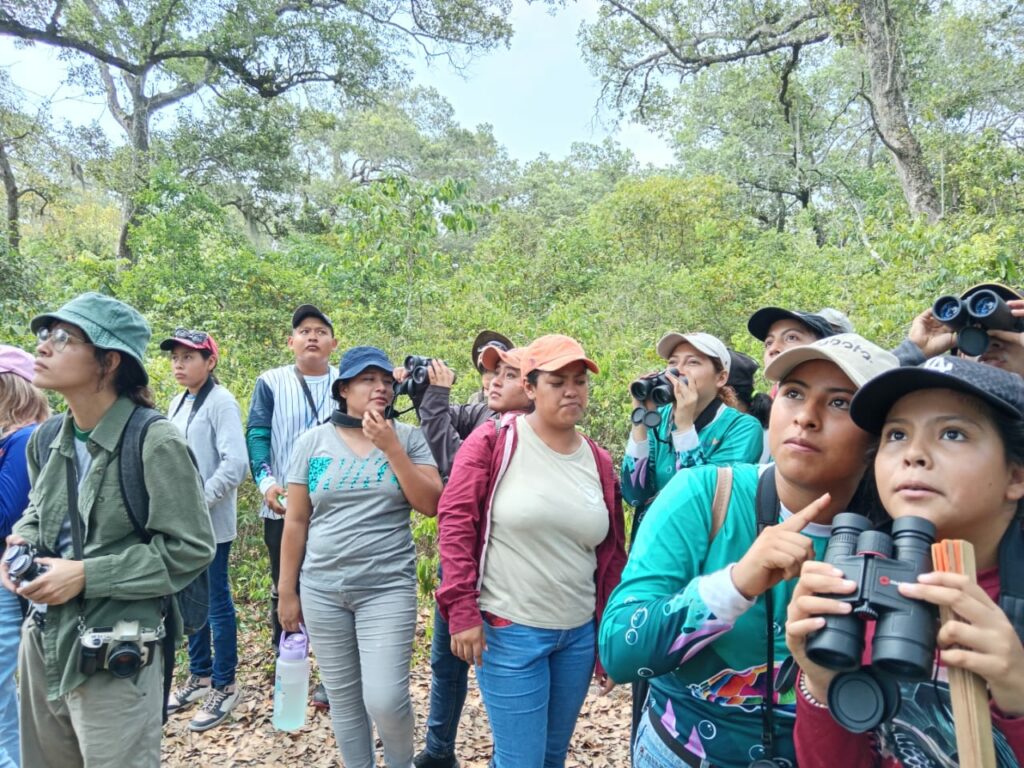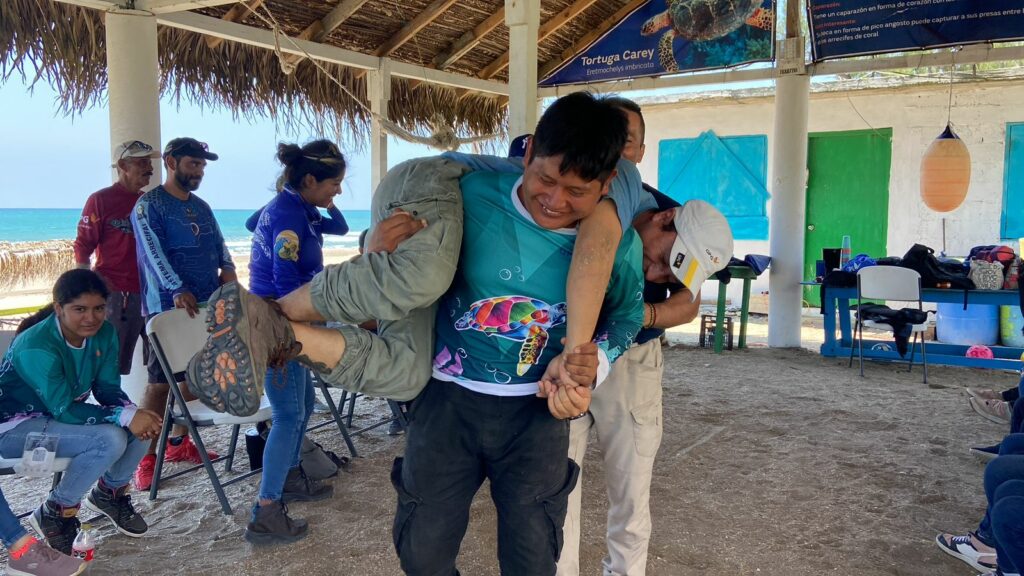Training, care and rescue of wildlife coated in oil
Oil spills and its derivatives can occur accidentally, generating an environmental contingency that causes impacts on flora and fauna. Within the Gulf of Mexico, operations involving the handling of hydrocarbons routinely take place. These manoeuvres and processes must implement maximum safety measures in their operations to avoid such contingencies. However, there is always a risk of spills impacting ecosystems and biodiversity.
In the face of these emergencies, trained and prepared individuals are needed to voluntarily respond to spills and carry out wildlife rescue. This is why, during the month of June, technicians and volunteers received training on how to take care of fauna covered in oil at Nakú Kayám, “Villamar sea turtle camp.” Training was provided by Jhostin Iván Sánchez Serda, operational technician of the Flora and Fauna Protection Area of the Lobos-Tuxpan Reef System (APFFSALT) of the National Commission of Natural Protected Areas (CONANP).
The aim of the training was to provide young volunteers from Villamar and the communities along the Ruta de los Kilometres with basic training in case of an emergency situation.
They learned about the harmful effects of oil on marine wildlife and how it can affect humans. Key actors in spill response were identified and a drill was carried out on the response actions to be taken in the event of an oil spill on the beaches of Villamar, Tuxpan and Veracruz.
The workshop was given to the 8 technicians and 11 volunteers of the camp; among the participants, 4 are beneficiaries of the “With GPG I go to university” scholarship and 3 of the “Solidarity Day” scholarship.
Basic life support and first aid
At Nakú Kayám, sea turtle camp, all the activities carried out by technicians and volunteers for the protection and conservation of the nests of sea turtles of the Kemp’s ridley, Green and Hawksbill species are done on the beach, on foot or by quad bike.
Although safety measures are taken during the activities, we are not exempt from risk, so it is vital to have trained people to safeguard the integrity of the volunteers and camp attendees.
For this reason, a basic life support and first aid workshop was given by the emergency medical technicians René Antemio Lezama Gómez and Guadalupe Alcántara Salazar.
These were days of significant learning for the 32 participants of the workshop, which included technicians, volunteers, scholarship holders, as well as thesis students and researchers from institutions such as the Universidad Veracruzana, the Comisión Nacional de Áreas Naturales Protegidas and the Programa de Aves Urbanas de Tuxpan.
During the workshop, the participants practised water rescue; they also reviewed basic concepts of pre-hospital care and vital signs; shock (fainting and convulsive crises); CPR and choking; care for bleeding, wounds and burns; care for fractures, dislocations and sprains; evacuation of victims (lifting and dragging); and injuries caused by site-specific flora and fauna.
To conclude the workshop and as part of the shared experience, the rescuers had the opportunity to accompany the camp technicians on the nocturnal monitoring of nesting Green turtle females.
Bird identification workshop
As part of the activities to celebrate the 20th anniversary of the Tuxpan III and IV combined-cycle power stations, the children of employees were invited to experience environmental education. Technicians, scholarship holders and volunteers from Nakú Kayám joined in these activities.
The 20 young Kuinta Tlawana (watchmen in Totonac language), aged 13 to 17, visited the camp and, together with technicians and volunteers, celebrated World Kemp’s Ridley Sea Turtle Day, a species endemic to the Gulf of Mexico.
In addition, activities were carried out with a focus on the conservation and preservation of bird habitats.
A guided bird watching tour was conducted by the Instituto Veracruzano de Ecología S. C. (IVEECO) and the Urban Bird Program Tuxpan (PAU Tuxpan). 24 bird observations were recorded during the tour. They also played games related to bird conservation.
These experiences were undoubtedly enriching for the children of the employees of the Tuxpan III and IV combined-cycle power stations.

